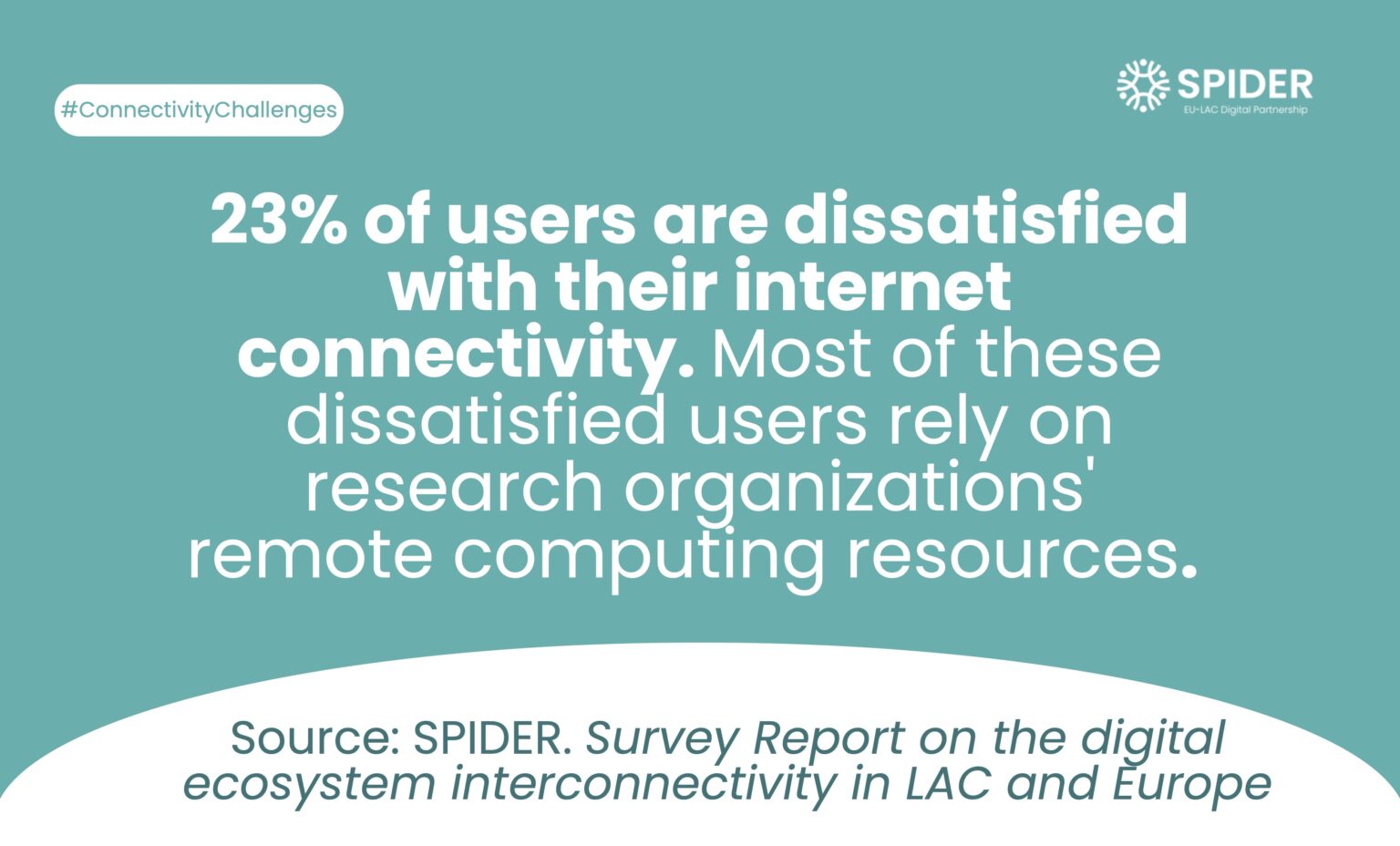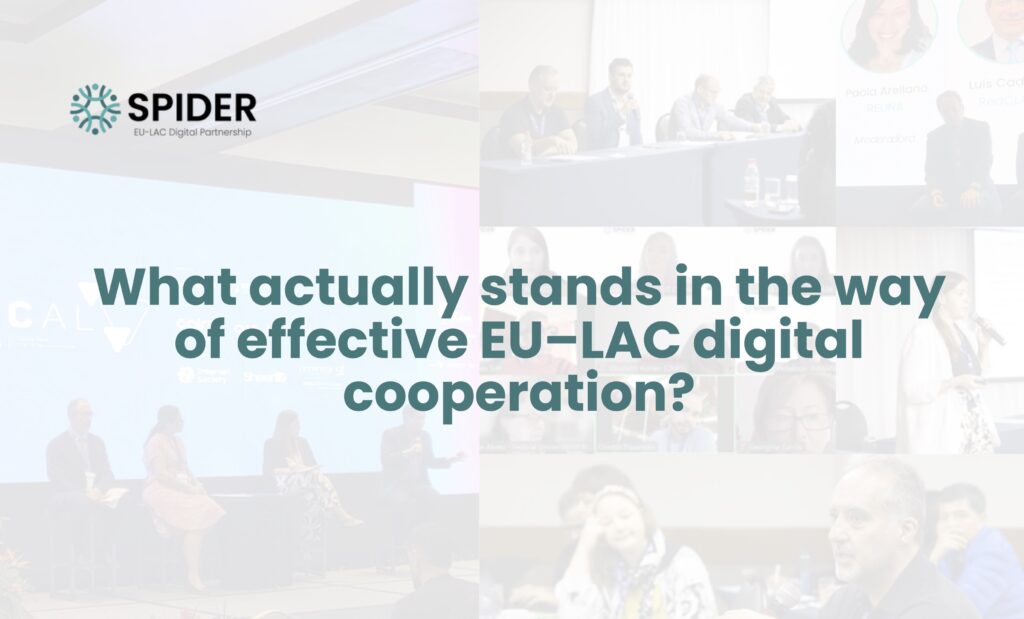In our increasingly interconnected world, reliable internet access has become a cornerstone of progress, particularly in academia and the public sector. However, findings from our comprehensive survey (Survey Report on the digital ecosystem interconnectivity in LAC and Europe) reveal a concerning trend: universities and government organizations report the lowest satisfaction with their internet connectivity. This dissatisfaction raises critical questions about the potential impact on research, innovation, and public service delivery.
The Survey: A Snapshot of Digital Interconnectivity
The SPIDER survey, spanning Latin America, the Caribbean, and Europe, aimed to evaluate the current state of digital ecosystem interconnectivity. It also assessed awareness and usage of infrastructure and services provided by BELLA (Building the Europe Link to Latin America and the Caribbean) through European and Latin American National Research and Education Networks (NRENs). With 357 respondents from various sectors, including academia, research organizations, and government bodies, the survey provides valuable insights into the digital landscape across these regions.
A Troubling Trend
Another key survey finding reveals that many dissatisfied users rely heavily on remote research tools. This statistic further emphasizes the critical link between connectivity quality and access to essential research infrastructure. It suggests that poor internet connections may be significantly impeding academic and public sector progress, particularly in institutions that depend on remote computing resources for their work.
The Implications
1. Research Limitations: In an era where collaborative, data-intensive research is increasingly common, subpar internet connectivity can severely restrict access to crucial online resources, databases, and collaboration tools.
2. Educational Challenges: Universities relying on online learning platforms and digital resources may struggle to provide high-quality education if hampered by unreliable internet connections.
3. Public Sector Inefficiencies: Government organizations require robust connectivity to deliver efficient services, manage data, and communicate effectively. Poor internet access can lead to delays, reduced productivity, and limited citizen engagement.
4. Innovation Barriers: Both academia and the public sector play crucial roles in driving innovation. Limited connectivity can stifle the exchange of ideas, slow down research processes, and hinder the development of cutting-edge technologies.
The Role of BELLA and NRENs:
The survey also explored the potential of BELLA infrastructure and NRENs in addressing these connectivity challenges. By identifying key barriers and potential applications, the study aims to unlock BELLA’s full potential in supporting digital transformation and international collaboration.
Moving Forward
Addressing the connectivity gap in academia and the public sector is crucial for fostering innovation, enhancing research capabilities, and improving public services. As we continue to rely more heavily on digital tools and remote collaboration, ensuring robust, reliable internet access becomes not just a matter of convenience, but a necessity for progress.
The findings from this survey serve as a call to action for policymakers, technology providers, and institutional leaders. Investing in improved digital infrastructure, particularly for universities and government organizations, could yield significant returns in terms of research output, educational quality, and public sector efficiency.
As we navigate the challenges of the digital age, bridging this connectivity divide must be a priority. Only then can we ensure that our academic and public institutions are fully equipped to drive innovation, foster international collaboration, and meet the evolving needs of society in an increasingly digital world.







